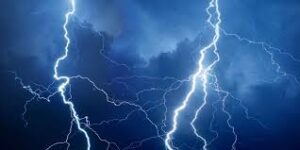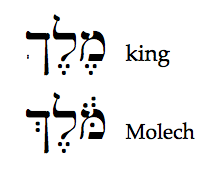I Am the LORD, the God of All Mankind,
Is Anything Too Hard For Me?
32: 26-44
I Am the LORD, the God of all mankind, is anything too hard for Me? DIG: What comfort does God offer in verses 26-29, in verses 36-41, and in verses 42-44? If the spiritual health of Anathoth is at all like the other Israelite towns in verses 30-35, what will probably be the fate of Yirmeyahu’s newly acquired property (11:21-23)? Why then does YHVH ask Jeremiah to buy the field? What do you think the rest of the City would have thought about this crazy real estate transaction?
REFLECT: When have you stepped out on faith and then had seriously reconsidered, even rescinded, your actions? If you ever challenge the LORD about the way things work out for you, how does God answer? What kind of answers do you expect?
587 BC at the end of the eleven-year reign of Zedekiah
ADONAI responds to the three points mentioned in Jeremiah’s prayer (to see link click Ft – Jeremiah Prays for Wisdom) with three points of His own.

Conformation of God’s power: Then the word of the LORD came to Jeremiah, “I am ADONAI, the God of all mankind. Is there anything too hard for Me (32:26-27)? God emphatically echoes and confirms what Yirmeyahu had said about Him earlier: ADONAI, God! You made the heaven and earth by your great power and outstretched arm; nothing is too hard for you (32:17 CJB). Indeed, YHVH is the Creator of heaven and earth . . . nothing is impossible for Him (Numbers 16:22 and 27:16). Neither the most bitter hatred of the strongest of His enemies, nor the doubts and misgivings of His perplexed and puzzled child can nullify the plans and purposes of an omnipotent God.337
We need to hear that God is still in control. We need to hear that it’s not over until He says so. We need to hear that life’s mishaps and tragedies are not a reason to bail out. They are simply a reason to sit tight. Corrie ten Boom used to say, “When the train goes through the tunnel and the whole world gets dark, do you jump out? Of course not. You sit still and trust the engineer to get you through.” How do you deal with discouragement? What is the cure for disappointment? Go back and read the story of God. Read it again and again. Be reminded that you aren’t the first person to weep. And you aren’t the first person that needed to be helped. Read the story and remember . . . because the story is yours!338
The near historical destruction of Jerusalem: It is not impossible for God to destroy Jerusalem. Therefore, this is what ADONAI says: I am about to give this City into the hands of the Babylonians and to Nebuchadnezzar king of Babylon, who will capture it. The Babylonians who are attacking this City will come in and set it on fire; they will burn it down, along with the houses. And the reason for the City’s fate: The people aroused My anger by burning incense on the roofs to Ba’al and by pouring out drink offerings to their gods (32:28-29). In the holocaust the flat roofs of the houses where pagan worship was conducted would also be destroyed and thus the provocation of the previous centuries would cease.
The people of Isra’el and Judah have done nothing but evil in My sight from their youth, from the nation’s beginning; indeed, the people of Isra’el have done nothing but arouse My anger with what their hands have made, declares the LORD. From the day it was built until now, this City has so aroused My anger and wrath that I must remove it from My sight. The people of Isra’el and Judah have provoked Me by all the evil they have done – they, their kings and officials, their priests and prophets, the people of Judah and all segments of society living in Yerushalayim (32:30-32). Yerushalayim herself had become the scene of so many evil practices.

They turned their backs on Me and not their faces; though I taught them persistently through My Torah, but they would not listen or respond to discipline (32:33). That is, they regarded themselves as autonomous, outside the claims of the Torah and beyond the obligations of the covenant. Thus autonomy was the worship of other gods, which in fact are only projections of self-interest.339 They set up their vile images in the house that bears My Name and defiled it (Ezeki’el 8:1-18). They built high places for Ba’al in the Valley of Ben Hinnom to sacrifice their sons and daughters to Molek, though I never commanded – nor did it enter My mind – that they should do such a detestable thing and so make Judah sin (32:34-35). The destruction of Jerusalem was also caused because of human sacrifice.
The far eschatological restoration of Jerusalem: God finally answered the question put to Him earlier: Why do You have me buy this field for money (32:25)? ADONAI summarizes the past concerning Zion, Judah and Isra’el. You are saying about this City, “By the sword, famine and plague it will be given into the hands of the king of Babylon,” but this is what the LORD, the God of Isra’el, says: I will surely gather them from all the lands where I banish them in My furious anger and great wrath; I will bring them back (shuwb) to this place and let them live in safety (32:36-37). Though Replacement Theology agrees that the Babylonians destroyed Jerusalem; it totally misses the point when it tries to make the remainder of this section about the Church (see the commentary on Acts Ag – Replacement Theology and Acts).
The same people He scattered, He will regather. They will be My people, and I will be their God (32:38). Is the context here the Church? No! It’s Isra’el. I will give them singleness of heart and action, so that they will always fear Me and that all will then go well for them and for their children after them (32:39). None of this took place after the return from Babylon, nor is this true today. All has not gone well with Isra’el and their children as we have seen in the Holocaust. No, only during the Messianic Kingdom will these words find fulfillment. I will make an everlasting covenant with them: I will never stop doing good to them, and I will inspire them to hold Me in reverence, so that they will never depart from Me (32:40). I will rejoice in doing them good and will assuredly plant them in the Land with all My heart and soul (32:41). None of the prophets looked forward to physical restoration only; the return was also to be spiritual.
This is what ADONAI says: As I have brought all this great calamity on this people, so I will give them all the prosperity I have promised them. This cannot be translated calamity against the Jews and prosperity on the Church, as some maintain. Once more fields will be bought in this Land of which you say, “It is a desolate waste, without people or animals, for it has been given into the hands of the Babylonians.” But it will become prosperous again: Fields will be bought for silver, and deeds will be signed, sealed and witnessed in the territory of Benjamin, in the villages around Jerusalem, in the towns of Judah and in the towns of the hill country, of the western foothills and of the Negev, because I will restore their fortunes, declares the LORD (32:42-44).
God was saying to them, “Don’t despair. It’s My judgment. Face it. Accept the suffering. Experience the chastening action. I am not against you. I am for you. I have not rejected you.” Judgment is not the last word for the elect. It is never the last word. Judgment was necessary for Isra’el because of centuries of hardheartedness. When the people were outwardly prosperous, they believed that nothing could interrupt or interfere with their self-satisfied lives. During those years Yirmeyahu preached judgment. Now the calamity was all around them, they believed that nothing could make things any better. So the message of hope was no more believed than the message of judgment had been.
Hope is buying into what we believe. We don’t turn away in despair. We don’t throw up our hands in disgust. We don’t write this person off as incorrigible. We don’t withdraw from a complex world that seems too much for us. It is, of course, far easier to languish in despair than to live in hope, for when we live in despair we don’t have to do anything or risk anything. We can criticize others all day long and not fear any reprisals. It’s fashionable to espouse the latest cynicism. If we live in hope, however, we go swim against the tide.
It is an amazing fact that in the flurry and panic of that day in Yerushalayim, the single act of faith and hope was that Jeremiah bought a field in Anathoth for seventeen shekels of silver. That act of faith made the word of God visible, made a foothold of it for anyone who wanted to make a way out of the chaotic despair into the ordered wholeness of salvation. Many would find their way out. It is not easy to act in hope because most of the immediate evidence is against it. So we live in a dilemma. If we live in faith and hope we must regularly defy the “wisdom” of our society. This takes courage; however it is our only option. It is the only solution that survives the decay of today and the scrapheap of yesterday.340



Leave A Comment